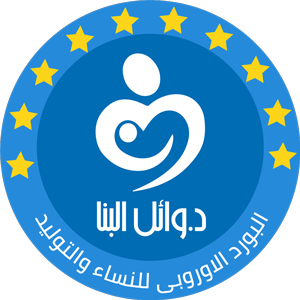Premature Birth
A premature or preterm baby is one that is born before 37 weeks. If your baby is born early they may need special care as they may not be fully developed.
What is premature birth?
The definition of a ‘premature’ or ‘preterm’ baby is one that is born before 37 weeks. There are different categories levels of prematurity and these carry their own risks:
Extremely preterm (less than 28 weeks)
very preterm (28 to 32 weeks)
moderate to late preterm (32 to 37 weeks).
What are the symptoms of premature birth?
The following symptoms before 37 weeks of pregnancy could be signs that you are about to go into labour:
an increase in pelvic pressure within the vagina or rectum.
an increase in discharge and/or a gush/repeat trickling of fluid, which could mean your waters have broken (preterm premature rupture of membranes).
bleeding or losing your mucus plug.
period type pains in your abdomen or lower back. These may have a rhythm or be constant.
If you have these symptoms contact your hospital.
What is the treatment for premature birth?
If a pregnancy is found to be at high risk of premature birth, the mother is treated to extend the pregnancy as far as possible. There are various ways this is done.
Monitoring – also known as the wait and see approach.
This may be used if you are at risk of premature birth and should involve monitoring via transvaginal ultrasound to check the cervix for shortening (in length) or funnelling (where the cervix begins to open from the top every two weeks from 14-28 weeks to ensure there is no change. Funnelling and shortening are signs that you may need treatment to prolong your pregnancy.
Progesterone
Progesterone is a hormone that is known to be important in preventing contractions and in supporting a pregnancy to full term. However, there is mixed evidence on the use of progesterone supplements to prevent cervical shortening but it may be recommended by your consultant as well as or instead of a cervical stitch. Progesterone is given as either daily pessaries or weekly injections. These can be started in the second trimester or earlier.
CERVICAL CERCLAGE
If you have had one or more premature baby or late miscarriage/s, or have had cervical surgery in the past and your cervix is getting shorter in early pregnancy, you may be offered a cervical stitch (also known as a cerclage or cervical suture) with the aim of keeping your cervix closed during pregnancy. You may also be offered this if you have had a number of premature deliveries without cervical shortening.
It may be tansvaginal or abdominal
If you have been told you are at risk of premature birth
The care you receive to reduce your risk of giving birth early will depend on the reason that you are at risk. Sometimes, you may be considered at risk because there is a problem with the placenta or your uterus; in these cases you will be monitored more closely for signs of early labour, or signs that your baby is not growing properly. If the doctors think that your or the baby’s health is at risk it may be best to deliver your baby early by induction or caesarean section. If you go into labour suddenly, it may be possible to delay it to give the baby longer to develop in the womb.
You may also be given advice about lifestyle changes that you could make. Smoking increases your chances of giving birth prematurely, for example, so if you smoke you will be encouraged to quit. Obesity also increases the risks of giving birth early, so if your body mass index is too high you will be given advice on how to stop putting on more weight by eating healthily and taking exercise.
What are the causes of premature birth?
In some cases a cause of preterm birth can be shown but more often it is unknown or unclear. Complications, such as infection or cervical incompetence increase the risk. Women who are having a multiple pregnancy (twins, triplets or more) are also have a higher chance of giving birth prematurely. The average length of pregnancy for twins is 37 weeks, and 33 weeks for triplets.
In 25% of preterm births, the delivery is planned because the mother and/or baby are suffering life-threatening complications such as pre-eclampsia, kidney disease or growth restriction.
Why is premature birth a problem?
During the nine months of pregnancy babies’ bodies are developing in the womb to allow them to survive and thrive when they are born. When a baby is born too soon, some parts of their development will not have been finished and this means they are not ready for life outside the womb.
Luckily advances in neonatal care have come on greatly and neonatal units, special care units and paediatricians are equipped to support the baby until their bodies strengthen and develop fully.
However, the earlier a baby is born the higher the risk is of health problems.
